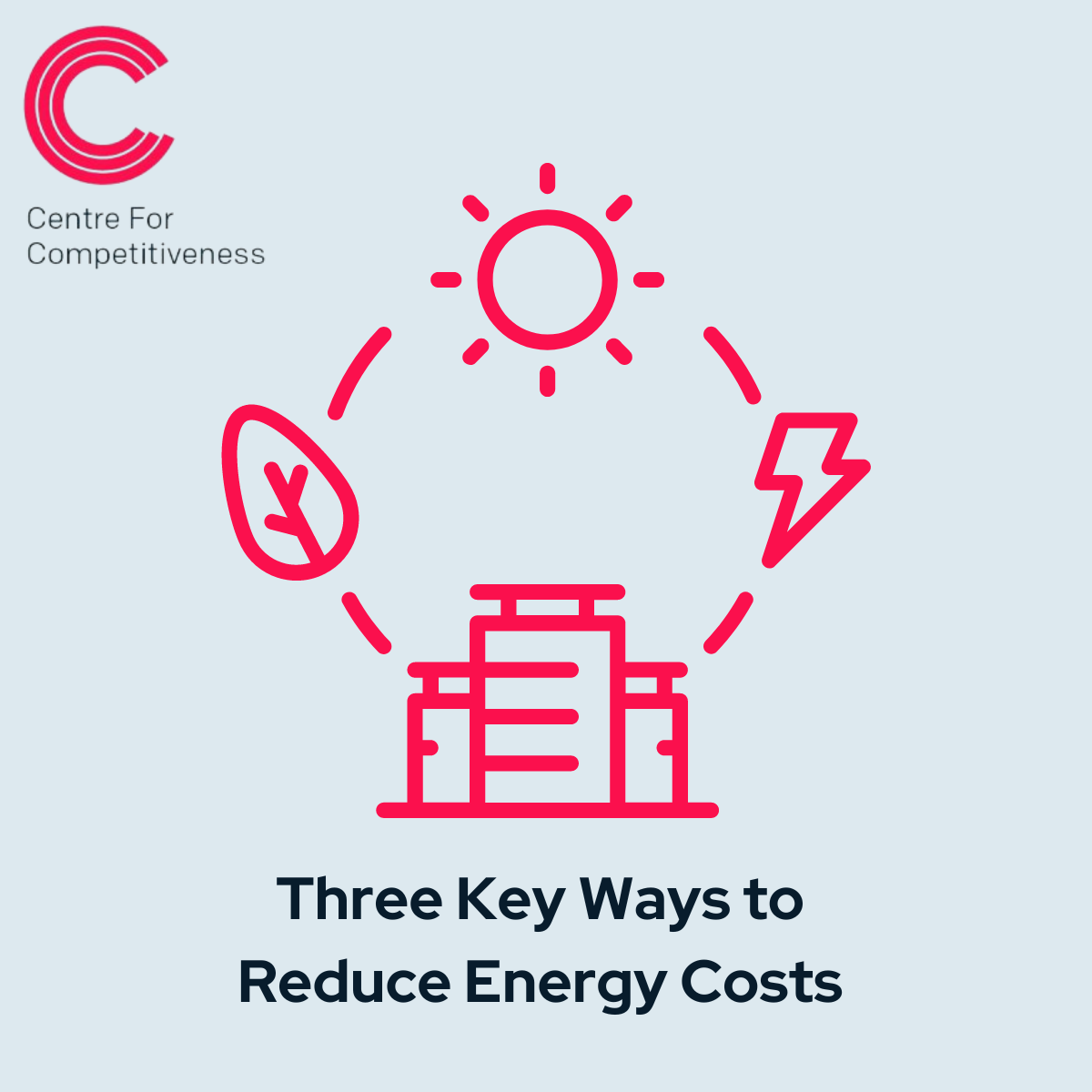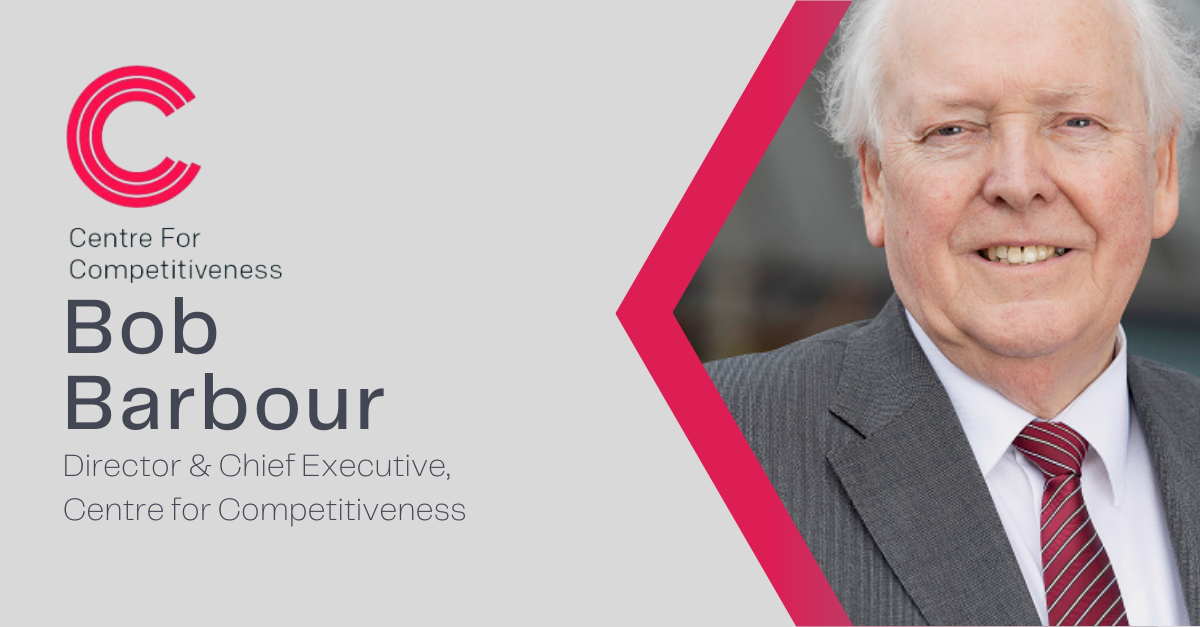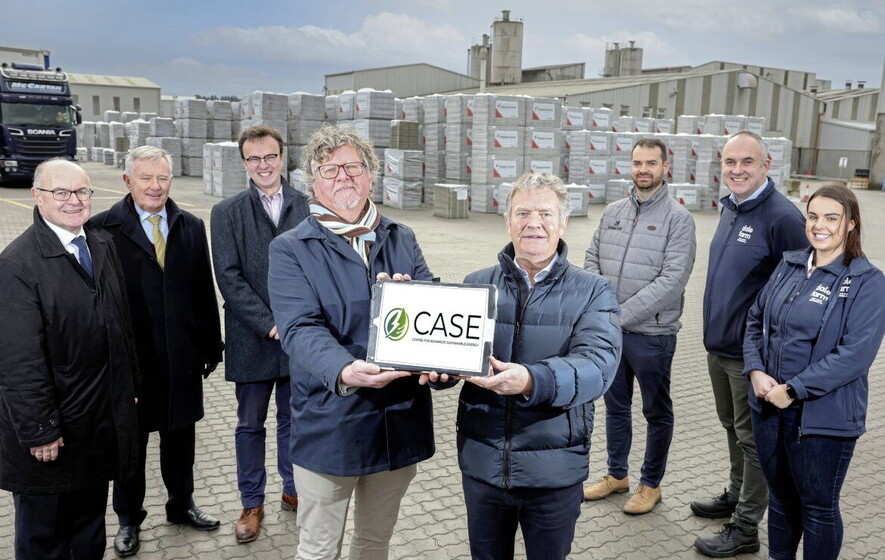Three Key Ways to Reduce Energy Costs | Statement by CEO Bob Barbour
Bob Barbour, Smart Grid Ireland Secretariat and CEO for Centre for Competitiveness, gives a statement on considerations businesses should make amid the current energy crisis.
With the unprecedented rise in energy prices across the energy market, many businesses and households have been left exposed and vulnerable to conditions outside of their control.
In an attempt to partially offset some of the impact of current and expected future energy price hikes while addressing the decarbonisation of energy within the business envelope, the Centre for Competitiveness would encourage consideration of the following systematic approach.
“While there is no silver bullet, there are solutions.” - Prof Dr Ronnie Belmans, KU Leuven, Brussels.
1. First: Energy Efficiency, circular energy, waste energy
2. Second: Electrification, whatever can be electrified as it contributes to efficiency.
(Never change the nature of energy if not required to do so)
3. Whatever is not achievable with the above, use sustainable molecules, amongst them Bio-methane, Hydrogen etc.
Reducing energy costs: Look again for energy efficiency opportunities, a good place to start towards Net Zero and reduced costs. If you don’t have in-house expertise and need help, contact the Centre for professional assistance with a structured Net Zero audit capability. Benchmark opportunities from within N. Ireland can also be arranged through the Centre’s membership network. Contact: sasha.allen@cforc.org
Circular Economy: This includes energy and also addresses waste which can be identified in more ways than one might think. Waste Reduction is an essential component in net zero carbon reduction. It also sits within the UK Governments “Golden Thread” legislation for the supply chain. This may also include new products / product material replacement and new sourcing strategies which is a specialist intervention. For help in this area, contact Dr Paul Madden – paul.madden@cforc.org or william.ussher@cforc.org
Installed Capacity: As energy prices escalate and accounts for a greater share of operational costs, there is benefit in considering on-site generation methods like solar PV, electrical energy storage, combined Heat & Power (CHP) or wind generation providing increased flexibility and control over energy usage. For assistance with this including the various regulatory implications advisory and research services are available from the SGI Secretariat at the Centre for Competitiveness.
Molecules: Where fossil gas is essential to fuelling operating plant, consideration should be given on how to decarbonise by blending the fossil gas with alternative molecules such as bio-methane. These discussions are best had with your gas supplier while Smart Grid Ireland is available as an advisory service to users.
For further information and support please contact:
sasha.allen@cforc.org or bob.barbour@smartgridireland.org




